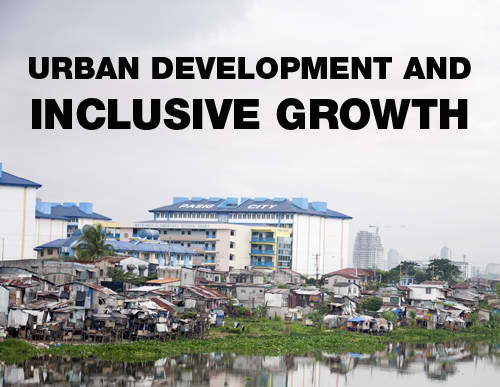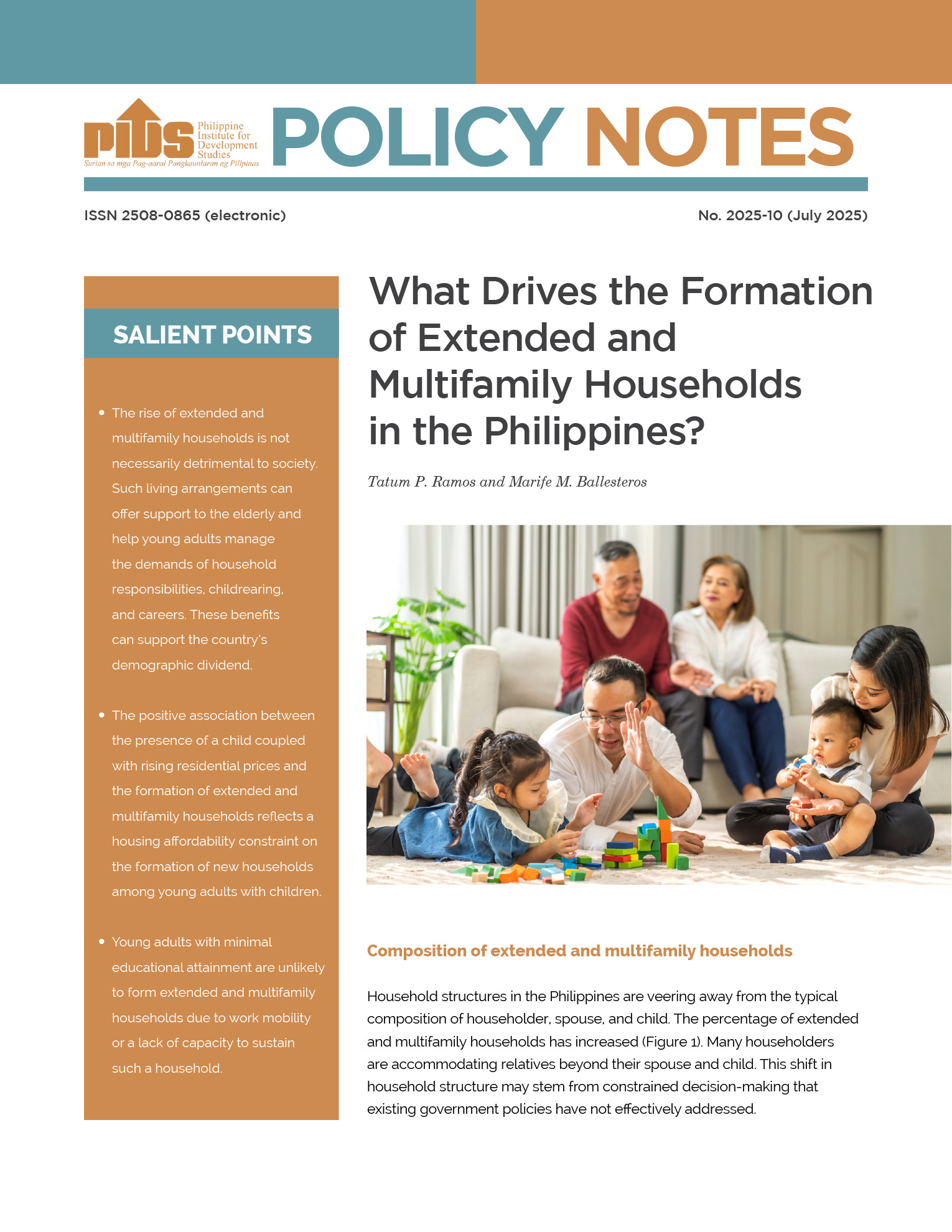
One of the inevitable consequences of economic growth is rapid urbanization. The developing world has seen the emergence of megacities, which are vital hubs of economic activity but are beset with problems such as mushrooming slums, worsening pollution, heightened disaster risks, and growing social inequality. Manila is already the 15th largest city in the world in terms of population density and will be among 21 megacities in Asia out of 37 worldwide by 2025, according to the Asian Development Bank (ADB). A recent ADB report noted that 60 percent of the Philippine population is now urban. Greater Metro Manila alone contains 33 million people. While poverty trends are declining in urban areas, many are just above the poverty line and remain vulnerable to shocks.
Key to reaching the goal of inclusive growth is addressing the challenges brought by urban development, such as providing adequate and affordable housing for the low-income sector. Research by PIDS experts points to the need to rationalize government subsidies and create favorable environment for housing finance. There is also a need to adopt appropriate and effective policies and mechanisms to correct dysfunctions in the land and housing markets. To make housing more accessible to low-income households, there are other viable options such as rental arrangements. The Philippines needs to build one million homes annually to keep up with the demand, estimated at 5.7 million units for the period 2011-2016.
Know more about what PIDS studies have to say about housing and urban development issues. Understand the dynamics of housing demand, issues about rent control, the efficiency of state resettlement programs, the fiscal costs of housing subsidies, and urban development policy options. Check the following links on the PIDS website's publications section or the SocioEconomic Research Portal for the Philippines.
- Housing policy for the poor: revisiting UDHA and CISFA
- Community-based approaches toward upgrading of informal settlements: Alternative strategies and recommendations for policymaking
- Toward a Strategic Urban Development and Housing Policy for the Philippines
- Fiscal costs of subsidies for socialized housing programs: an update
- Efficiency and Effectiveness Review of the National Housing Authority Resettlement Program
- Rental housing: Opening doors for low-income household
- The Dynamics of Housing Demand in the Philippines: Income and Lifecycle Effects
- Benefits (and Losses) from Rent Control in the Philippines: An Empirical Study of Metro Manila
You may access these studies and more via the SocioEconomic Research Portal for the Philippines by simply typing 'poverty' in the Search box.












